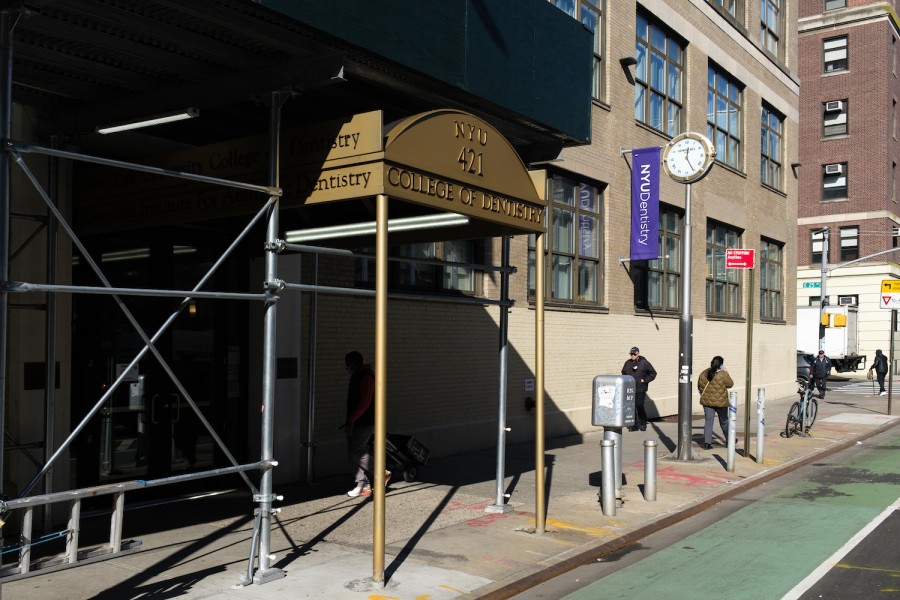NYU dental study shows promising results for alternative cavity treatment
Researchers at the NYU College of Dentistry found that a one-time medical treatment prevents 80% of cavities.
(Samson Tu for WSN)
March 1, 2023
A new study from NYU College of Dentistry faculty found that silver diamine fluoride was effective in treating over 50% of dental cavities in children, and preventing 80%. The results indicate that this cavity treatment is superior to more commonly known remedies.
The study, which was published in the Journal of the American Medical Association Network Open by three NYU faculty members, tested the treatment in a clinical trial program called CariedAway.
One of the primary reasons for investigating silver diamine fluoride is that it is easier for marginalized communities, which are disproportionately impacted by dental cavities, to access the treatment. Compared to sealants, silver diamine fluoride is cost-effective, time-effective and can be applied by registered nurses instead of requiring a trained dental professional.
“I know for a fact that we have states that still have no school-based sealant programs,” study co-author Tamarinda Barry Godín said. “We know that some of the deterrents for school-based sealant programs are that you need a workforce to support it, and that workforce is often reliant on dental professionals.”
Despite being listed by the World Health Organization as an essential medicine for cavities and being fairly common internationally, silver diamine fluoride has not caught on to the same degree in the United States. Barry-Godin attributes this to inertia and the upholding of a status quo within U.S. medical industry.
Silver diamine fluoride is known to stain teeth. To address aesthetic concerns, the researchers only applied the treatment to the back teeth, avoiding the front of the mouth. Additionally, other research from NYU has found that, even for front teeth, staining is seen as preferable to alternatives.
Beyond impacting dental health, cavities can have severe negative effects on children’s quality of life and academic performance, leading to a greater detriment for communities without adequate access to treatment. Inez Perez, a registered dental hygienist who worked on the CariedAway study, has seen firsthand how pain from cavities can be a great burden in everyday life.
“Experiencing dental pain can lead to sleepless nights, loss of appetite and throbbing pain that can travel beyond the oral cavity,” Perez said. “Children are charged with attending school daily ready to focus and learn, however, managing pain becomes priority.”
Contact Hope Pisoni at [email protected].



























































































































































